
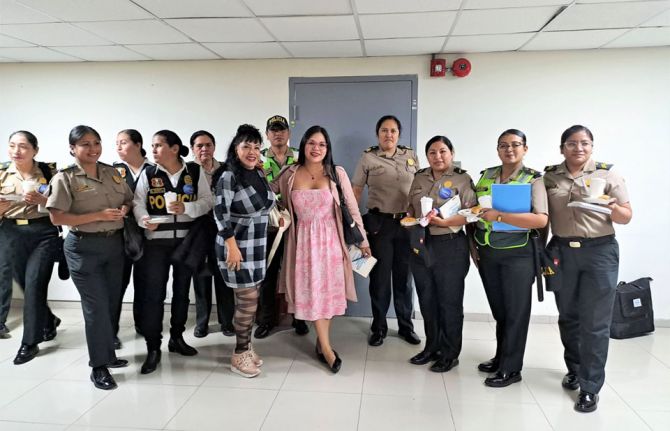
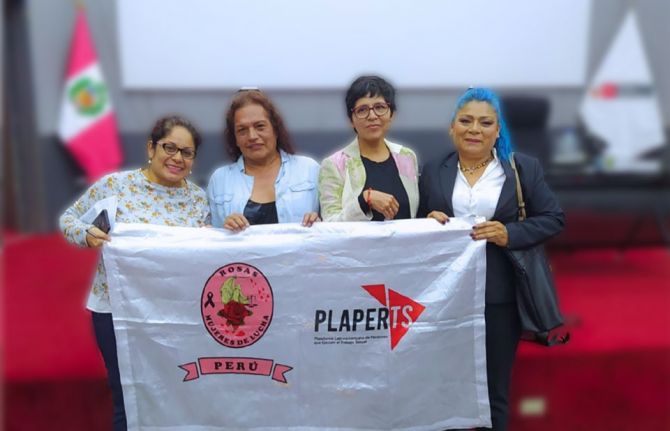
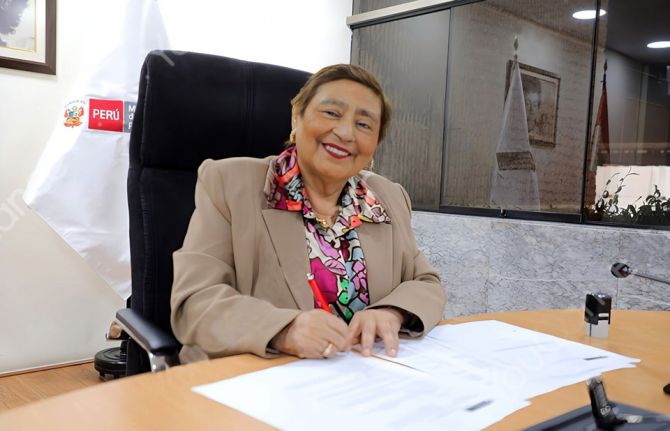
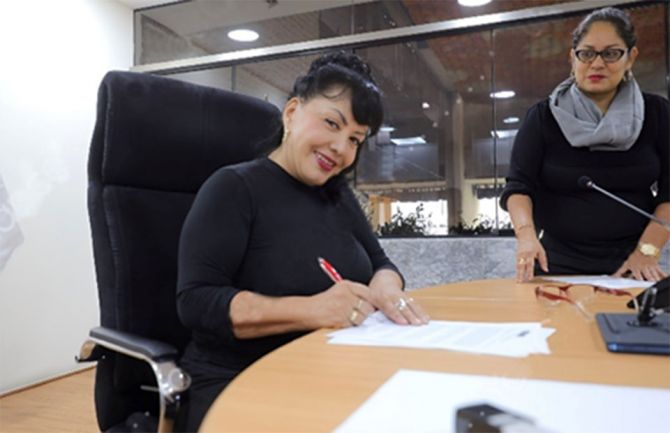
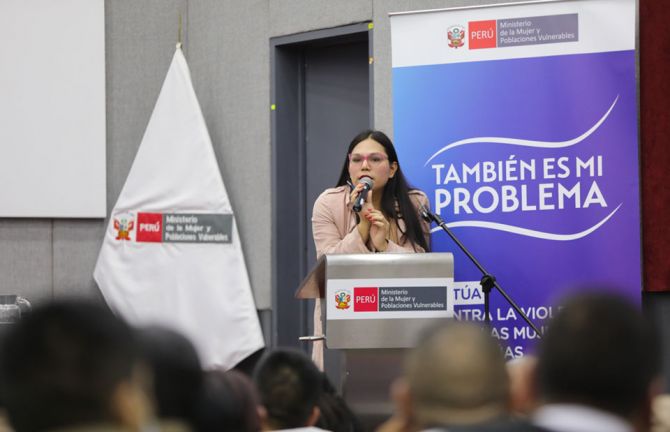
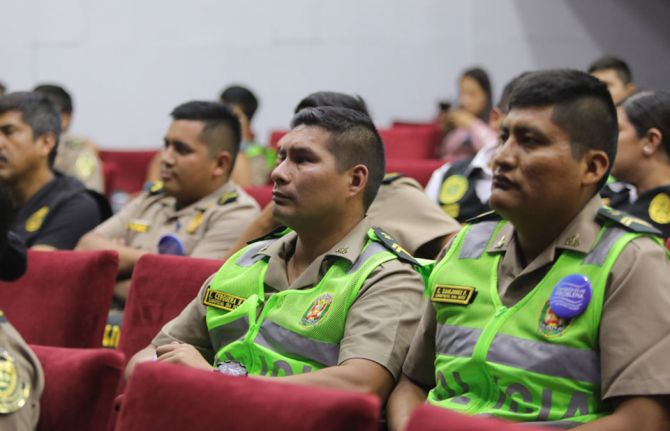
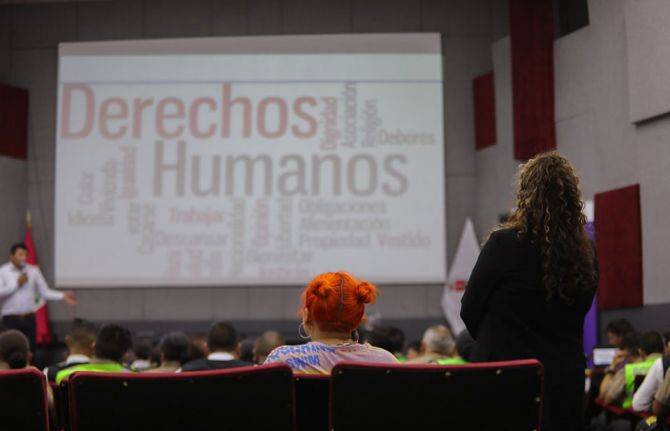
Feature Story
Addressing violence against women sex workers in Peru
27 July 2023
27 July 2023 27 July 2023Ángela Villón Bustamante has been a sex worker and human rights activist for her community in Peru for almost 25 years. She has experienced first-hand the violence against sex workers. After she was beaten by a policeman in 1996, she began her activism.
"I don't want anyone else to end up almost dead like I did. The organization Miluska Vida y Dignidad (Miluska Life and Dignity, in English) is the organisation I created almost 30 years ago to find justice for those of us violated by public forces", recalls Ángela. "It was the first sex workers' organisation in Peru, and its name is in honour of my dear friend Miluska, who died after being beaten by one of them."
In the same years, transgender woman Alejandra Fang also was imprisoned for sex work, and a police officer asked her to have sex to be released. "I was forced into sex because, as a trans woman, I had no alternative. As a result of that traumatic situation, I decided to become an activist," says Alejandra.
Like Ángela, Alejandra also turned her negative experiences into opportunities for others so that no one would have to go through the same situations. She then became part of the Casa Trans Zuleymi and now leads Trans Organizacion Feminista (Feminist Trans Organization).
According to the Peruvian Ombudsman's Office, 95.8% of trans women have been victims of violence, 62.2% are engaged in sex work due to lack of employment opportunities, and only 5.1% have completed secondary education.
More than 10 cis and transgender sex workers have been murdered since the beginning of this year in Peru – four transgender sex workers in one week alone, by February 1. "This situation spread to other provinces in Peru, and sex workers had to go into hiding for weeks to protect their lives," says Ángela. "We have been unable to work and care for our basic personal and family needs."
The criminalisation of sex workers prevents them from seeking justice when they are harassed, physically harmed, or otherwise discriminated against. "We often do not report abuse to avoid further mistreatment and because of the stigma attached to our occupation," explains the activist.
"Whether they are living with HIV, migrants, Afro-descendants or indigenous– all these intersections generate exponential stigma and discrimination and place them in extreme vulnerability," says UNAIDS Director for the Andean Countries (Peru, Ecuador, Bolivia, and Colombia), Andrea Boccardi. "It puts them in such a precarious situation that it makes it difficult to access health services, food security, employment, education, and justice. Although self-employed sex work in Peru is legal, they have always been criminalized."
Given the situation of violence against sex workers in Peru, the organizations led by Angela and Alejandra, along with other organizations such as the Asociación Civil T.S. Rosas Mujeres de Lucha, are among those implementing a plan with the Peruvian Ministry of Women and Vulnerable Populations to address violence against sex workers in the country.
More than 100 police officers have already been trained by courses designed and facilitated by cis and transgender sex workers. The training provided knowledge on human rights, stigma, and discrimination, and their essential role as guarantors of justice to contribute to adopting a human rights-based approach in their work throughout the country.
Besides coordinating and facilitating a working group to fight violence and promote the fundamental rights of sex workers with several local and regional organizations and networks, UNAIDS has also partnered with the Public Defender's Office of the Ministry of Justice and Human Rights of Peru and with representatives of the sex workers' community to develop a protocol for the provision of legal assistance and victim advocacy services to sex workers.
"After so many years, I feel that our voice is now being heard," says Ángela.
Related resources
Find out more about HIV criminalization:


